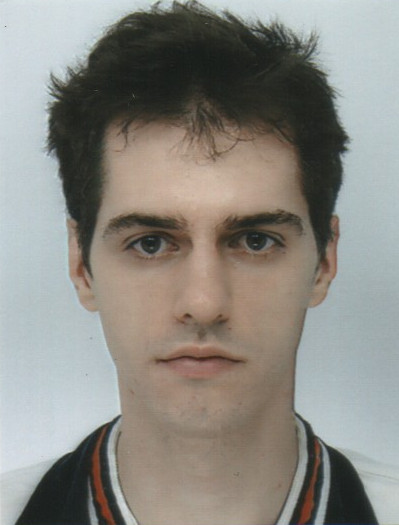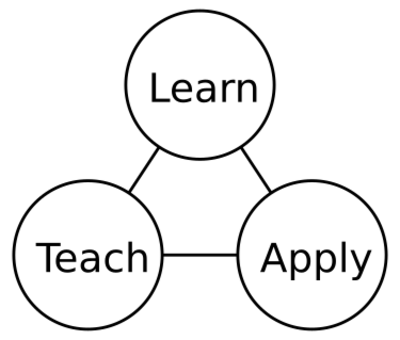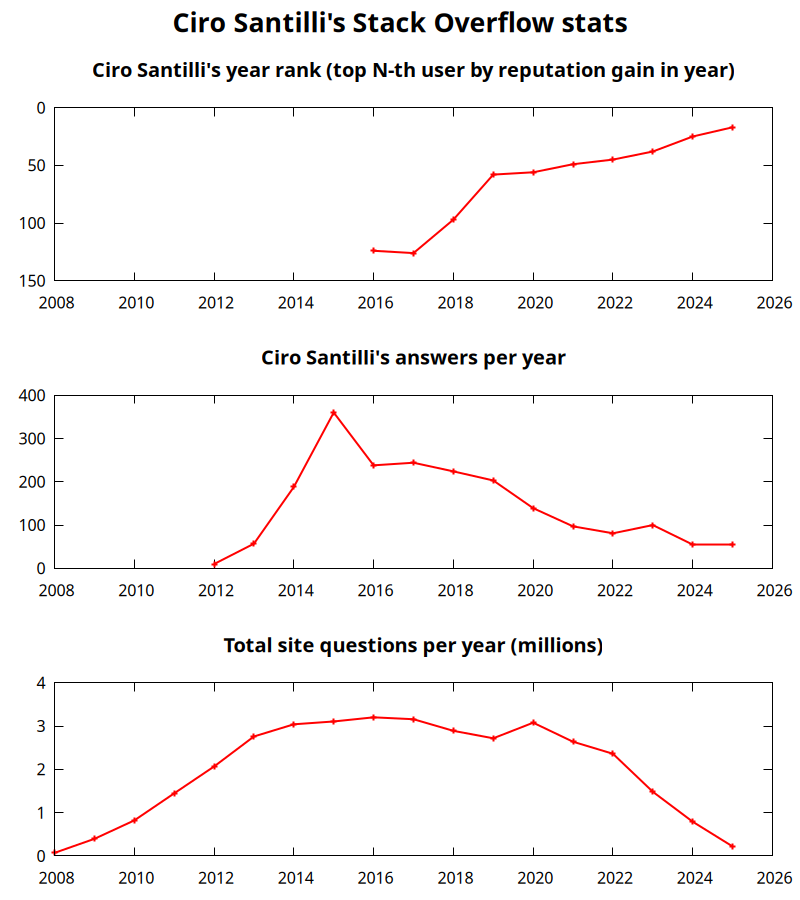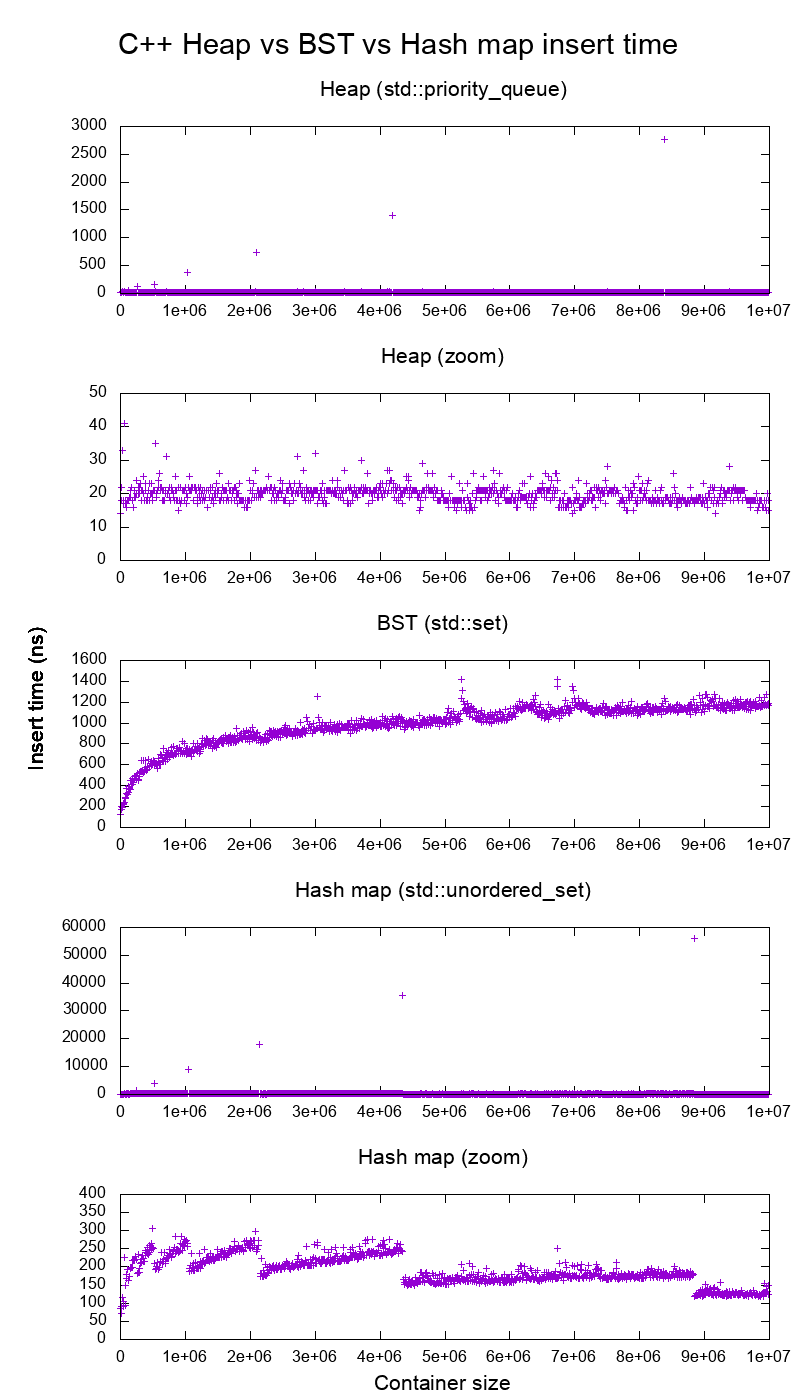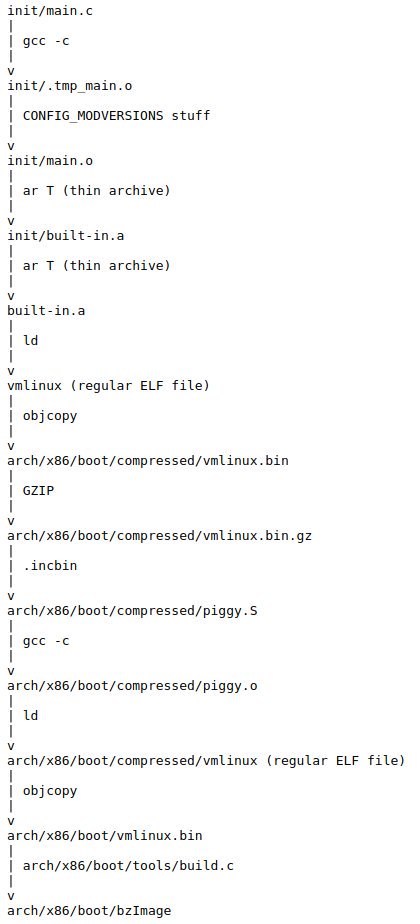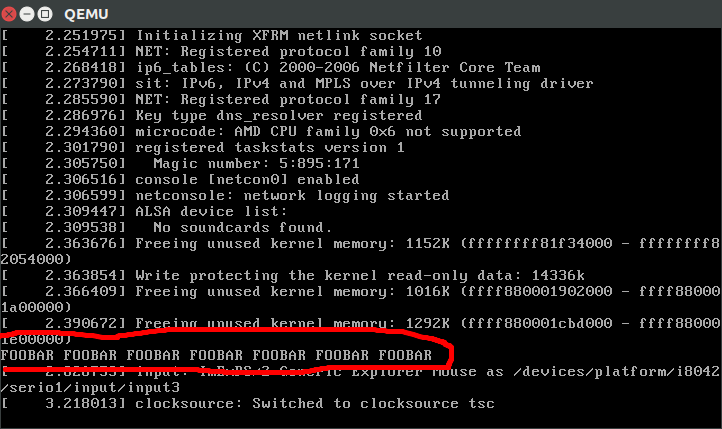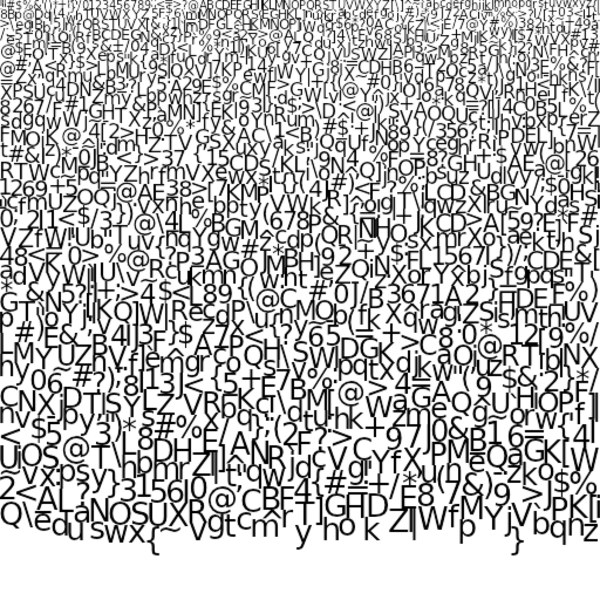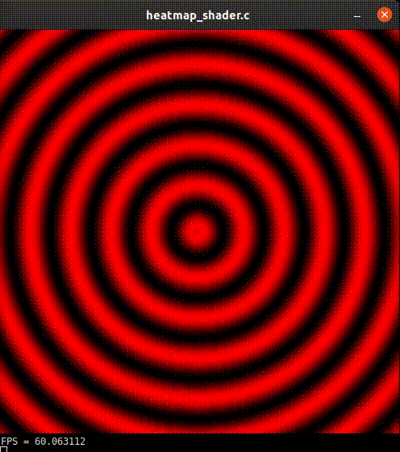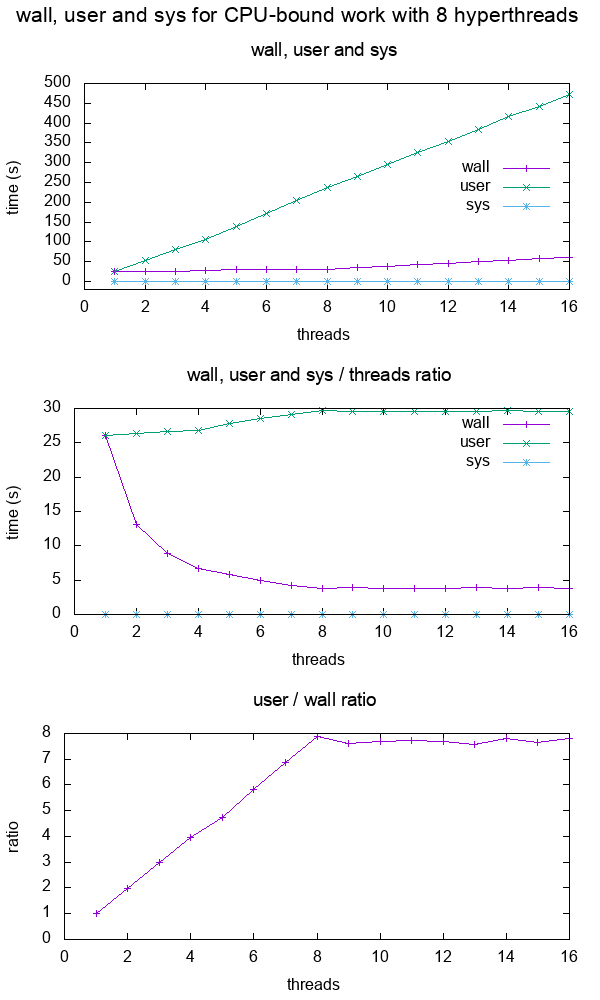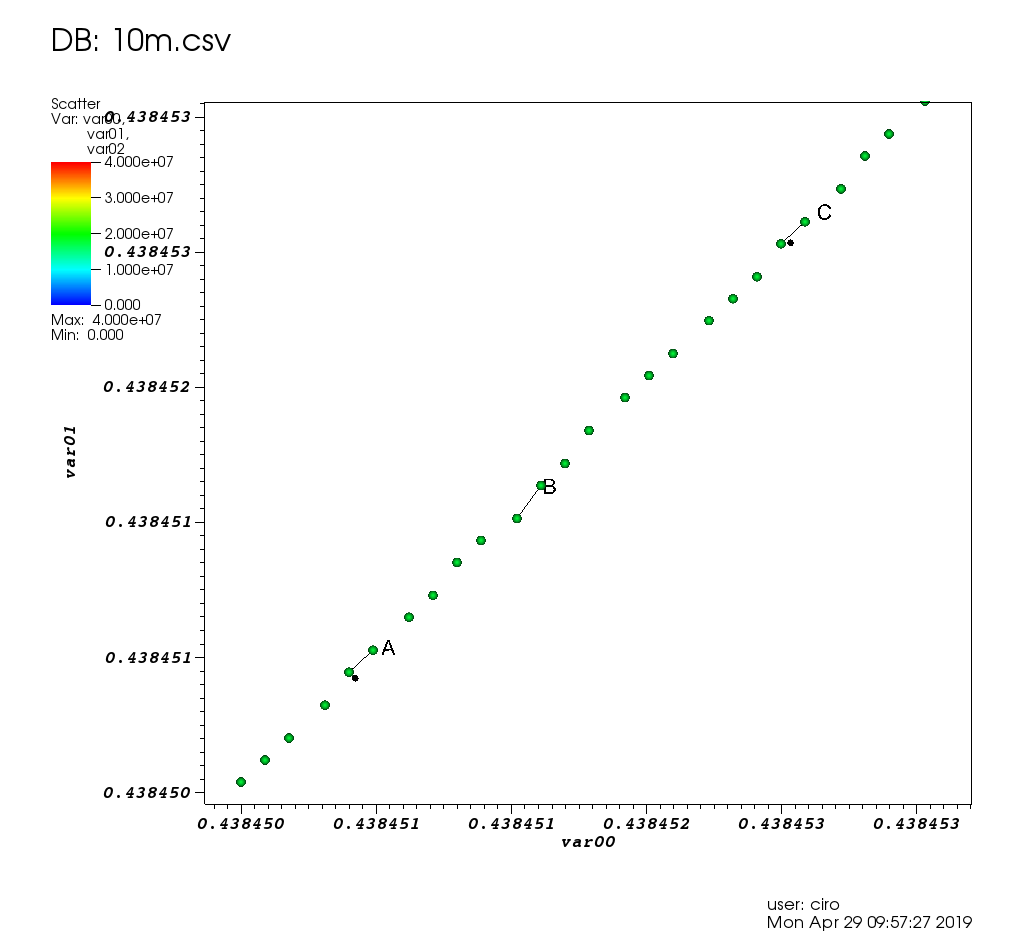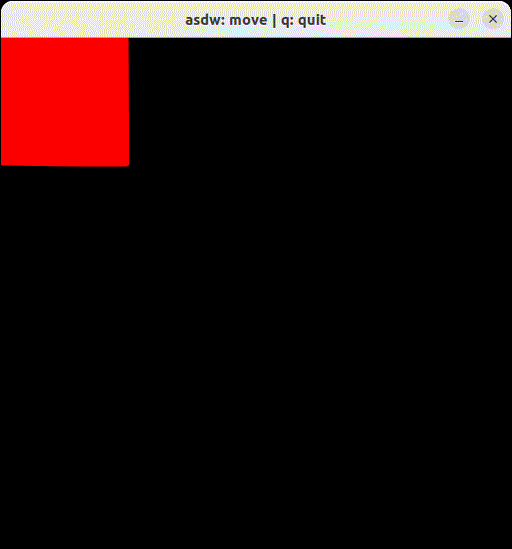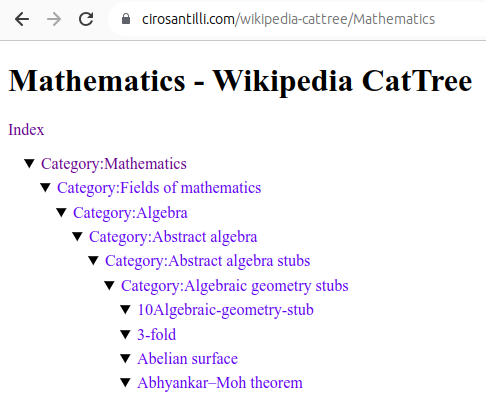Home Updated 2025-12-02
Check out: OurBigBook.com, the best way to publish your scientific knowledge. It's an open source note taking system that can publish from lightweight markup files in your computer both to a multi-user mind melding dynamic website, or as a static website. It's like Wikipedia + GitHub + Stack Overflow + Obsidian mashed up. Source code: github.com/ourbigbook/ourbigbook.
Sponsor me to work on this project. For 400k USD I will quit my job or not get a new job and work on OurBigBook full time for a second year to try and kickstart The Higher Education Revolution. Status: ~44k / 400k USD. At 4M USD I retire/tenure and work on open STEM forever. How to donate: Section "Sponsor Ciro Santilli's work on OurBigBook.com".
I first quit my job 1st June 2024 to work on the project for 1 year after I reached my initial 100k goal mostly via a 1000 Monero donation. For a second follow up year, I increased my requirement to 400k USD to give me more peace of mind as I'm destroying my career in the process. A second year greatly improve chances of success: on year one I improved my tech, on year two I want to come guns blazing to solve courses and get users.
Mission: to live in a world where you can learn university-level mathematics, physics, chemistry, biology and engineering from perfect free open source books that anyone can write to get famous. More rationale: Section "OurBigBook.com"
Explaining things is my superpower, e.g. I was top user #39 on Stack Overflow in 2023[ref][ref] and I have a few 1k+ star educational GitHub repositories[ref][ref][ref][ref]. Now I want to bring that level of awesomeness to masters level Mathematics and Physics. But I can't do it alone! So I created OurBigBook.com to allow everyone to work together towards the perfect book of everything.
My life's goal is to bring hardcore university-level STEM open educational content to all ages. Sponsor me at github.com/sponsors/cirosantilli starting from 1$/month so I can work full time on it. Further information: Section "Sponsor Ciro Santilli's work on OurBigBook.com". Achieving what I call "free gifted education" is my Nirvana.
This website is written in OurBigBook Markup, and it is published on both cirosantilli.com (static website) and outbigbook.om/cirosantilli (multi-user OurBigBook Web instance). Its source code is located at: github.com/cirosantilli/cirosantilli.github.io and also at
cirosantilli.com/_dir and it is licensed under CC BY-SA 4.0 unless otherwise noted.To contact Ciro, see: Section "How to contact Ciro Santilli". He likes to talk with random people of the Internet.
GitHub | Stack Overflow | LinkedIn | YouTube | Twitter | Wikipedia | Zhihu 知乎 | Weibo 微博 | Other accounts
Besides that, I'm also a freedom of speech slacktivist and recreational cyclist. I like Chinese traditional music and classic Brazilian pop. Opinions are my own, but they could be yours too. Tax the rich.
Let's create an educational system with:
- no distinction between university and high school, students just go as fast as they can to what they really want without stupid university entry exams
- fully open source learning material
- on-demand examinations that anyone can easily take without prerequisites
- granular entry selection only for space in specific laboratories or participation in specific novel research projects
I offer:
- online private tutoring for:
- any STEM university course
- passionate younger STEM students (any age) who want to learn university level material and beyond. Can your kid be the next Fields Medalist or Nobel Prize winner? I'm here to help, especially if you are filthy rich! I focus moving students forward as fast as they want on and on producing useful novel tutorials and results
Let your child be my Emile, and me be their Adolfo Amidei, and let's see how far they can go! I will help take your child:and achieve their ambitious STEM goals!- into the best universities
- into the best PhD programs
- educational consulting for institutions looking to improve their STEM courses
- do you know that course or teacher that consistently gets bad reviews every year? I'll work with the teacher to turn the problem around!
- are you looking to create a consistent open educational resources offering to increase your institutions internationally visibility? I can help with that too.
My approach is to:For minors, parents are welcome to join video calls, and all interactions with the student will be recorded and made available to parents.
- propose interesting research projects. The starting point is always deciding the end goal: Section "Backward design"
- learn what is needed to do the project together with the student(s)
- publish any novel results or tutorials/tools produced freely licensed online, and encourage the student to do the same (Section "Let students learn by teaching", digital garden)
I have a proven track of explaining complex concepts in an interesting and useful way. I work for the learner. Teaching statement at: Section "How to teach". Pricing to be discussed. Contact details at: Section "How to contact Ciro Santilli".
I am particularly excited about pointing people to the potential next big things, my top picks these days are:I am also generally interested in:
- quantum computing
- AGI research, in particular AI code generation, automated theorem proving and robotics
- assorted molecular biology technologies
- 20th century physics, notably AMO and condensed matter
- the history of science, and in particular trying to look at seminal papers of a field
Ciro Santilli's amazing Stack Overflow profile
. Ciro contributes almost exclusively by answering question he Googles into out of his own need, and never by refreshing the newest question of big tags for low hanging fruit! More information at: Section "Ciro Santilli's Stack Overflow contributions".Ciro Santilli's Stack Overflow stats
. Further methodology details at: Figure "Ciro Santilli's Stack Overflow stats".The problem with education by Ciro Santilli
. Source. In this video Ciro Santilli exposes his fundamental philosophy regarding why Education is broken. This philosophy was the key motivation behind the failed OurBigBook Project.OurBigBook Web topics demo
. Source. The OurBigBook topic feature allows users to "merge their minds" in a "sort by upvote"-stack overflow-like manner for each subject. This is the killer feature of OurBigBook Web. More information at: docs.ourbigbook.com/ourbigbook-web-topics.OurBigBook dynamic article tree demo
. Source. The OurBigBook dynamic tree feature allows any of your headers to be the toplevel h1 header of a page, while still displaying its descendants. SEO loves this, and it also allows users to always get their content on the correct granularity. More information at: docs.ourbigbook.com/ourbigbook-web-dynamic-article-tree.OurBigBook local editing and publishing demo
. Source. With OurBigBook you can store your content as plaintext files in a Lightweight markup, and then publish that to either OurBigBook.com to get awesome multi-user features, or as a static website where you are in full control. More information at: docs.ourbigbook.com/publish-your-content.Top Down 2D continuous game with Urho3D C++ SDL and Box2D for Reinforcement learning by Ciro Santilli (2018)
Source. More information: Section "Ciro's 2D reinforcement learning games". This is Ciro's underwhelming stab at the fundamental question: Can AGI be trained in simulations?. This project could be taken much further.Water Margin tribute to Chinese dissidents by Ciro Santilli (2022)
Source. Part of Ciro Santilli's campaign for freedom of speech in China, see also: cirosantilli.com/china-dictatorship/water-margin.Lenovo ThinkPad T430 running a BIOS hello world
. This uses Ciro Santilli's project x86 bare metal examples with source code at: github.com/cirosantilli/x86-bare-metal-examplesLinux Kernel Module Cheat presentation
. Source. This project, with source code at: github.com/cirosantilli/linux-kernel-module-cheat, aims to be the perfect emulation setup to study and develop the Linux kernel, kernel modules, QEMU, gem5 as well as x86_64, ARM userland and baremetal assembly and more.My Bitcoin inscription museum by Ciro Santilli
. Source. Introductory video to Section "Cool data embedded in the Bitcoin blockchain". -------------------------------------
| Force of Will 3 U U |
| --------------------------------- |
| | //////////// | |
| | ////() ()\////\ | |
| | ///_\ (--) \///\ | |
| | ) //// \_____///\\ | |
| | ) \ / / / / | |
| | ) / \ | | / _/ | |
| | ) \ ( ( / / / / \ | |
| | / ) ( ) / ( )/( ) \ | |
| | \(_)/(_)/ /UUUU \ \\\/ | | |
| .---------------------------------. |
| Interrupt |
| ,---------------------------------, |
| | You may pay 1 life and remove a | |
| | blue card in your hand from the | |
| | game instead of paying Force of | |
| | Will's casting cost. Effects | |
| | that prevent or redirect damage | |
| | cannot be used to counter this | |
| | loss of life. | |
| | Counter target spell. | |
| `---------------------------------` |
| l
| Illus. Terese Nelsen |
-------------------------------------Code 1.
ASCII art of a Force of Will Magic: The Gathering card inscribed in the Bitcoin blockchain
. Artist unknown, uploaded December 2014. Part of Section "Cool data embedded in the Bitcoin blockchain" where Ciro Santilli maintains a curated list of such interesting inscriptions.
This was a small project done by Ciro for artistic purposes that received some attention due to the incredible hype surrounding cryptocurrencies at the time. Ciro Santilli's views on cryptocurrencies are summarized at: Section "Are cryptocurrencies useful?".
YellowRobot.jpgJPG image fully embedded in the Bitcoin blockchain depicting some kind of cut material art depicting a yellow robot, inscribed on January 29, 2017.
Ciro Santilli found this image and others during his research for Section "Cool data embedded in the Bitcoin blockchain" by searching for image fingerprints on every transaction payload of the blockchain with a script.
The image was uploaded by EMBII, co-creator of the AtomSea & EMBII upload mechanism, which was responsible for a large part of the image inscriptions in the Bitcoin blockchain.
The associated message reads:This is one of Ciro Santilli's favorite AtomSea & EMBII uploads, as it perfectly encapsules the "medium as an art form" approach to blockchain art, where even non-novel works can be recontextualized into something interesting, here depicting an opposition between the ephemeral and the immutable.
Chiharu [EMBII's Japanese wife] and I found this little yellow robot while exploring Chicago. It will be covered by tar or eventually removed but this tribute will remain. N 41.880778 E -87.629210
2010 Wayback Machine archive of starwarsweb.net
. This website was used as one of the CIA 2010 covert communication websites, a covert system the CIA used to communicate with its assets. More details at: Section "CIA 2010 covert communication websites".
Ciro Santilli had some naughty OSINT fun finding some of the websites of this defunct network in 2023 after he heard about the 2022 Reuters report on the matter, which for the first time gave away 7 concrete websites out of a claimed 885 total found. As of November 2023, Ciro had found about 350 of them.
2010 Wayback Machine archive of noticiasmusica.net
. This is another website that was used as one of the CIA 2010 covert communication websites. This website is written in Brazilian Portuguese, and therefore suggests that the CIA had assets in Brazil at the time, and thus was spying on a "fellow democracy".
Although Snowden's revelations made it extremely obvious to the world that the USA spies upon everyone outside of the Five Eyes, including fellow democracies, it is rare to have such a direct a concrete proof of it visible live right on the Wayback Machine. Other targeted democracies include France, Germany, Italy and Spain. More details at: USA spying on its own allies.
This investigative report by Ciro Santilli was featured on the Daily Mail after 404 Media reported on it in 2025.
Diagram of the fundamental theorem on homomorphisms by Ciro Santilli (2020)
Shows the relationship between group homomorphisms and normal subgroups.
Used in the Stack Exchange answer to What is the intuition behind normal subgroups? One of Section "The best articles by Ciro Santilli".
Spacetime diagram illustrating how faster-than-light travel implies time travel by Ciro Santilli (2021)
Used in the Stack Exchange answer to Does faster than light travel imply travelling back in time?. One of Section "The best articles by Ciro Santilli".Average insertion time into heaps, binary search tree and hash maps of the C++ standard library by Ciro Santilli (2015)
Source. Used in the Stack Overflow answer to Heap vs Binary Search Tree (BST). One of Section "The best articles by Ciro Santilli".Birch and Swinnerton-Dyer conjecture in two minutes by Ciro Santilli
. Source. Quick and direct explanation of the statement of the BSD conjecture for people who know basic university mathematics. This is one of the Millennium Prize Problems, and you will get a million dollars if you can solve it! This therefore falls in the Simple to state but hard to prove of Ciro Santilli's the beauty of mathematics aesthetics.Top view of an open Oxford Nanopore MinION
. Source. This is Ciro Santilli's hand on the Wikipedia article: en.wikipedia.org/wiki/Oxford_Nanopore_Technologies. He put it there after working a bit on Section "How to use an Oxford Nanopore MinION to extract DNA from river water and determine which bacteria live in it" :-) And he would love to document more experiments like that one Section "Videos of all key physics experiments", but opportunities are extremely rare.A quick 2D continuous AI game prototype for reinforcement learning written in Matter.js, you can view it on a separate page at cirosantilli.com/_raw/js/matterjs/examples.html#top-down-asdw-fixed-viewport. This is a for-fun-only prototype for Ciro's 2D reinforcement learning games, C++ or maybe Python (for the deep learning ecosystem) seems inevitable for a serious version of such a project. But it is cute how much you can do with a few lines of Matter.js!
HTML snippet:
<iframe src="_raw/js/matterjs/examples.html#top-down-asdw-fixed-viewport" width="1000" height="850"></iframe> 100 Greatest Discoveries by the Discovery Channel (2004-2005) Updated 2025-07-16
Hosted by Bill Nye.
Physics topics:
- Galileo: objects of different masses fall at the same speed, hammer and feather experiment
- Newton: gravity, linking locally observed falls and the movement of celestial bodies
- TODO a few more
- superconductivity, talk only at Fermilab accelerator, no re-enactment even...
- quark, interview with Murray Gell-Mann, mentions it was "an off-beat field, one wasn't encouraged to work on that". High level blablabla obviously.
- fundamental interactions, notably weak interaction and strong interaction, interview with Michio Kaku. When asked "How do we know that the weak force is there?" the answer is: "We observe radioactive decay with a Geiger counter". Oh, come on!
biology topics:
- Leeuwenhoek microscope and the discovery of microorganisms, and how pond water is not dead, but teeming with life. No sample of course.
- 1831 Robert Brown cell nucleus in plants, and later Theodor Schwann in tadpoles. This prepared the path for the idea that "all cells come from other cells", and the there seemed to be an unifying theme to all life: the precursor to DNA discoveries. Re-enactment, yay.
- 1971 Carl Woese and the discovery of archaea
Genetics:
- Mendel. Reenactment.
- 1909 Thomas Hunt Morgan with Drosophila melanogaster. Reenactment. Genes are in Chromosomes. He observed that a trait was linked to sex, and it was already known that sex was related to chromosomes.
- 1935 George Beadle and the one gene one enzyme hypothesis by shooting X-rays at bread mold
- 1942 Barbara McClintock, at Cold Spring Harbor Laboratory
- 1952 Hershey–Chase experiment. Determined that DNA is what transmits genetic information, not protein, by radioactive labelling both protein and DNA in two sets of bacteriophages. They observed that only the DNA radioactive material was passed forward.
- Crick Watson
- messenger RNA, no specific scientist, too many people worked on it, done partially with bacteriophage experiments
- 1968 Nirenberg genetic code
- 1972 Hamilton O. Smith and the discovery of restriction enzymes by observing that they were part of anti bacteriophage immune-system present in bacteria
- alternative splicing
- RNA interference
- Human Genome Project, interview with Craig Venter.
Medicine:
- blood circulation
- anesthesia
- X-ray
- germ theory of disease, with examples from Ignaz Semmelweis and Pasteur
- 1796 Edward Jenner discovery of vaccination by noticing that cowpox cowpox infected subjects were immune
- vitamin by observing scurvy and beriberi in sailors, confirmed by Frederick Gowland Hopkins on mice experiments
- Fleming, Florey and Chain and the discovery of penicillin
- Prontosil
- diabetes and insulin
Abraham Pais Updated 2025-07-16
This due is a beast, he knows both the physics and the history of physics, and has the patience to teach it. What a blessing: Section "How to teach and learn physics".
Adolfo Amidei Updated 2025-07-16
This dude mentored Enrico Fermi in high school. Ciro Santilli added some info to Fermi's Wikipedia page at: en.wikipedia.org/w/index.php?title=Enrico_Fermi&type=revision&diff=1050919447&oldid=1049187703 from Enrico Fermi: physicist by Emilio Segrè (1970):
In 1914, Fermi, who used to often meet with his father in front of the office after work, met a colleague of his father called Adolfo Amidei, who would walk part of the way home with Alberto [Enrico's father]. Enrico had learned that Adolfo was interested in mathematics and physics and took the opportunity to ask Adolfo a question about geometry. Adolfo understood that the young Fermi was referring to projective geometry and then proceeded to give him a book on the subject written by Theodor Reye. Two months later, Fermi returned the book, having solved all the problems proposed at the end of the book, some of which Adolfo considered difficult. Upon verifying this, Adolfo felt that Fermi was "a prodigy, at least with respect to geometry", and further mentored the boy, providing him with more books on physics and mathematics. Adolfo noted that Fermi had a very good memory and thus could return the books after having read them because he could remember their content very well.
Ciro Santilli really likes guys like this. Given that he does not have the right genetics, conditions and temperance for scientific greatness in this lifetime, he dreams of one day finding his own Fermi instead.
Animal rights Updated 2025-07-16
Ciro Santilli has mixed feelings about animal rights.
On one hand, his irrational side wants of course all animals to be happy.
On the other, he does not care about this enough to not kill and eat them, even though he believes that you could live off plants relatively well.
His more rational side says: humans are sacred. Either because you believe in the soul, or because your built-in empathy behaviours. If it is not a human, do whatever you want to it. Killing is already undoubtedly the greatest sin. It is not OK to kill a human painlessly is it? So if torturing it brings humans good, then do it.
Of course, this does get use close and closer to "the what is a human" question, which is more relevant than ever in the awakening of genetics: all species are after all a continuum right?
And Ciro does not have a simple solution to this problem, besides that in 99.9999% the answer is obvious to 99.9999% of the people, and for the others cases, we have to do it like the law and make flawed rules to cover the remaining 0.000099999% cases and let juries decide the rest.
The only other sensible sacredness barrier is the common vegetarian "nervous systems are sacred" one. But how can you believe that if you also follow the religion of physics, where everything is just made of atoms?
Is it evil to take one neuron and torture it? What does that even mean? It will be fun when pain and pleasure are fully understood.
And you are going to have a really hard time when mosquitoes start transmitting deadly diseases that kill your family.
Laws in most 2020 Western modern societies have converged to a hypocritical balance between not offending people too much by hiding the killing and minimizing the pain when possible at low cost. Killing animals painlessly is basically always fine if it brings any "non sadistic" pleasure to humans. And torturing animals is fine with approval e.g. to make medicines.
This has the downside of increasing costs for society. Maybe there are practical benefits besides people feeling bad about animals? Maybe we would have more serial killers if people were free to torture animals? Maybe people in butcher shops would become depressive if their bosses weren't forced to use more expensive painless killing methods? Neither of those seems like huge arguments though.
It eventually comes down to: "how much more is a human life worth than that of an animal" which brings Jesus's Matthew 6:25-34 "Do Not Worry" (archive) quote to mind:
Therefore I tell you, do not worry about your life, what you will eat or drink; or about your body, what you will wear. Is not life more than food, and the body more than clothes? Look at the birds of the air; they do not sow or reap or store away in barns, and yet your heavenly Father feeds them. Are you not much more valuable than they?
Non-vegetarian pets owners also baffle Ciro, as most of them basically extend the sacred human line further arbitrarily to certain other cute looking animals like dogs, cats or rabbits, but will gladly kill a cow indirectly by paying someone to pay someone to pay someone to cut it into small pieces. Or they believe that certain specific individuals are sacred. Admittedly, the latter is more rational, and looks a lot of how we treat our own families well, and can accept that other families are not doing so well.
Ciro's even more rational evil side says: the real reason why humans are sacred is a practical one: people have families that love them, and they come to kill you if you kill them, and this starts endless chains of violence that make society unbearable.
Art Updated 2025-07-16
Stuff that is beautiful but useless because it does not make food or houses cheaper.
Or from Ciro Santilli's best random thoughts:
Without technology, one cannot survive. Without art, one cannot live.
But that sure enough has a Jesus semi-precursor, and likely many others: man shall not live by bread alone.
The best articles by Ciro Santilli Updated 2025-07-16
These are the best articles ever authored by Ciro Santilli, most of them in the format of Stack Overflow answers.
Ciro posts update about new articles on his Twitter accounts.
Some random generally less technical in-tree essays will be present at: Section "Essays by Ciro Santilli".
- Trended on Hacker News:
- CIA 2010 covert communication websites on 2023-06-11. 190 points, a mild success.
- x86 Bare Metal Examples on 2019-03-19. 513 points. The third time something related to that repo trends. Hacker news people really like that repo!
- again 2020-06-27 (archive). 200 points, repository traffic jumped from 25 daily unique visitors to 4.6k unique visitors on the day
- How to run a program without an operating system? on 2018-11-26 (archive). 394 points. Covers x86 and ARM
- ELF Hello World Tutorial on 2017-05-17 (archive). 334 points.
- x86 Paging Tutorial on 2017-03-02. Number 1 Google search result for "x86 Paging" in 2017-08. 142 points.
- x86 assembly
- What does "multicore" assembly language look like?
- What is the function of the push / pop instructions used on registers in x86 assembly? Going down to memory spills, register allocation and graph coloring.
- Linux kernel
- What do the flags in /proc/cpuinfo mean?
- How does kernel get an executable binary file running under linux?
- How to debug the Linux kernel with GDB and QEMU?
- Can the sys_execve() system call in the Linux kernel receive both absolute or relative paths?
- What is the difference between the kernel space and the user space?
- Is there any API for determining the physical address from virtual address in Linux?
- Why do people write the
#!/usr/bin/envpython shebang on the first line of a Python script? - How to solve "Kernel Panic - not syncing: VFS: Unable to mount root fs on unknown-block(0,0)"?
- Single program Linux distro
- QEMU
- gcc and Binutils:
- How do linkers and address relocation works?
- What is incremental linking or partial linking?
- GOLD (
-fuse-ld=gold) linker vs the traditional GNU ld and LLVM ldd - What is the -fPIE option for position-independent executables in GCC and ld? Concrete examples by running program through GDB twice, and an assembly hello world with absolute vs PC relative load.
- How many GCC optimization levels are there?
- Why does GCC create a shared object instead of an executable binary according to file?
- C/C++: almost all of those fall into "disassemble all the things" category. Ciro also does "standards dissection" and "a new version of the standard is out" answers, but those are boring:
- What does "static" mean in a C program?
- In C++ source, what is the effect of
extern "C"? - Char array vs Char Pointer in C
- How to compile glibc from source and use it?
- When should
static_cast,dynamic_cast,const_castandreinterpret_castbe used? - What exactly is
std::atomicin C++?. This answer was originally more appropriately entitled "Let's disassemble some stuff", and got three downvotes, so Ciro changed it to a more professional title, and it started getting upvotes. People judge books by their covers. notmain.o 0000000000000000 0000000000000017 W MyTemplate<int>::f(int) main.o 0000000000000000 0000000000000017 W MyTemplate<int>::f(int)Code 1.. From: What is explicit template instantiation in C++ and when to use it?nmoutputs showing that objects are redefined multiple times across files if you don't use template instantiation properly
- IEEE 754
- What is difference between quiet NaN and signaling NaN?
- In Java, what does NaN mean?
Without subnormals: +---+---+-------+---------------+-------------------------------+ exponent | ? | 0 | 1 | 2 | 3 | +---+---+-------+---------------+-------------------------------+ | | | | | | v v v v v v ----------------------------------------------------------------- floats * **** * * * * * * * * * * * * ----------------------------------------------------------------- ^ ^ ^ ^ ^ ^ | | | | | | 0 | 2^-126 2^-125 2^-124 2^-123 | 2^-127 With subnormals: +-------+-------+---------------+-------------------------------+ exponent | 0 | 1 | 2 | 3 | +-------+-------+---------------+-------------------------------+ | | | | | v v v v v ----------------------------------------------------------------- floats * * * * * * * * * * * * * * * * * ----------------------------------------------------------------- ^ ^ ^ ^ ^ ^ | | | | | | 0 | 2^-126 2^-125 2^-124 2^-123 | 2^-127Code 2.Visualization of subnormal floating point numbers vs what IEEE 754 would look like without them. From: What is a subnormal floating point number?
- Computer science
- Algorithms
Figure 5. Average insertion time into heaps, binary search tree and hash maps of the C++ standard library. Source. From: Heap vs Binary Search Tree (BST)
- Is it necessary for NP problems to be decision problems?
- Polynomial time and exponential time. Answered focusing on the definition of "exponential time".
- What is the smallest Turing machine where it is unknown if it halts or not?. Answer focusing on "blank tape" initial condition only. Large parts of it are summarizing the Busy Beaver Challenge, but some additions were made.
- Algorithms
- Git
| 0 | 4 | 8 | C | |-------------|--------------|-------------|----------------| 0 | DIRC | Version | File count | ctime ...| 0 | ... | mtime | device | 2 | inode | mode | UID | GID | 2 | File size | Entry SHA-1 ...| 4 | ... | Flags | Index SHA-1 ...| 4 | ... |Code 3.ASCII art depicting the binary file format of the Git index file. From: What does the git index contain EXACTLY?tree {tree_sha} {parents} author {author_name} <{author_email}> {author_date_seconds} {author_date_timezone} committer {committer_name} <{committer_email}> {committer_date_seconds} {committer_date_timezone} {commit message}Code 4.Description of the Git commit object binary data structure. From: What is the file format of a git commit object data structure?- How do I clone a subdirectory only of a Git repository?
- Python
- Web technology
- OpenGL
Figure 7. OpenGL rendering output dumped to a GIF file. Source. From: How to use GLUT/OpenGL to render to a file?- What are shaders in OpenGL?
- Why do we use 4x4 matrices to transform things in 3D?
Figure 10. Sinusoidal circular wave heatmap generated with an OpenGL shader at 60 FPS on SDL. Source.
- Node.js
- Ruby on Rails
- POSIX
- What is POSIX? Huge classified overview of the most important things that POSIX specifies.
- Systems programming
- What do the terms "CPU bound" and "I/O bound" mean?
Figure 12. Plot of "real", "user" and "sys" mean times of the output of time for CPU-bound workload with 8 threads. Source. From: What do 'real', 'user' and 'sys' mean in the output of time?+--------+ +------------+ +------+ | device |>---------------->| function 0 |>----->| BAR0 | | | | | +------+ | |>------------+ | | | | | | | +------+ ... ... | | |>----->| BAR1 | | | | | | +------+ | |>--------+ | | | +--------+ | | ... ... ... | | | | | | | | +------+ | | | |>----->| BAR5 | | | +------------+ +------+ | | | | | | +------------+ +------+ | +--->| function 1 |>----->| BAR0 | | | | +------+ | | | | | | +------+ | | |>----->| BAR1 | | | | +------+ | | | | ... ... ... | | | | | | +------+ | | |>----->| BAR5 | | +------------+ +------+ | | | ... | | | +------------+ +------+ +------->| function 7 |>----->| BAR0 | | | +------+ | | | | +------+ | |>----->| BAR1 | | | +------+ | | ... ... ... | | | | +------+ | |>----->| BAR5 | +------------+ +------+Code 5.Logical struture PCIe device, functions and BARs. From: What is the Base Address Register (BAR) in PCIe?
- Electronics
- Raspberry Pi
Figure 13. Raspberry Pi 2 directly connected to a laptop with an Ethernet cable. Image from answer to: How to hook up a Raspberry Pi via Ethernet to a laptop without a router?Figure 14. . Image from answer to: How to hook up a Raspberry Pi via Ethernet to a laptop without a router? Figure 15. . Image from answer to: How to emulate the Raspberry Pi 2 on QEMU? Figure 16. Bare metal LED blinker program running on a Raspberry Pi 2. Image from answer to: How to run a C program with no OS on the Raspberry Pi?
- Raspberry Pi
- Computer security
- Media
Video 2. Canon in D in C. Source.The original question was deleted, lol...: How to programmatically synthesize music?- How to resize a picture using ffmpeg's sws_scale()?
- Is there any decent speech recognition software for Linux? ran a few examples manually on
vosk-apiand compared to ground truth.
- Eclipse
- Computer hardware
- Scientific visualization software
Figure 17. VisIt zoom in 10 million straight line plot with some manually marked points. Source. From: Section "Survey of open source interactive plotting software with a 10 million point scatter plot benchmark by Ciro Santilli"
- Numerical analysis
- Computational physics
- Register transfer level languages like Verilog and VHDL
- Verilog:
Figure 19. . See also: Section "Verilator interactive example"
- Verilog:
- Android
Video 4. Android screen showing live on an Ubuntu laptop through ADB. Source. From: How to see the Android screen live on an Ubuntu desktop through ADB?
- Debugging
- Program optimization
- What is tail call optimization?
Figure 21. . Source. The answer compares gprof, valgrind callgrind, perf and gperftools on a single simple executable.
- Data
Figure 22. Mathematics dump of Wikipedia CatTree. Source. In this project, Ciro Santilli explored extracting the category and article tree out of the Wikipedia dumps.
- Mathematics
Figure 23. Diagram of the fundamental theorem on homomorphisms by Ciro Santilli (2020)Shows the relationship between group homomorphisms and normal subgroups.- Section "Formalization of mathematics": some early thoughts that could be expanded. Ciro almost had a stroke when he understood this stuff in his teens.
Figure 24. Simple example of the Discrete Fourier transform. Source. That was missing from Wikipedia page: en.wikipedia.org/wiki/Discrete_Fourier_transform!
- Network programming
- Physics
- What is the difference between plutonium and uranium?
Figure 25. Spacetime diagram illustrating how faster-than-light travel implies time travel. From: Does faster than light travel imply travelling back in time?
- Biology
Figure 26. Top view of an open Oxford Nanopore MinION. Source. From: Section "How to use an Oxford Nanopore MinION to extract DNA from river water and determine which bacteria live in it"Figure 27. Mass fractions in a minimal growth medium vs an amino acid cut in a simulation of the E. Coli Whole Cell Model by Covert Lab. Source. From: Section "E. Coli Whole Cell Model by Covert Lab"
- Quantum computing
- Section "Quantum computing is just matrix multiplication"
Figure 28. Visualization of the continuous deformation of states as we walk around the Bloch sphere represented as photon polarization arrows. From: Understanding the Bloch sphere.
- Bitcoin
- GIMP
Figure 29. GIMP screenshot part of how to combine two images side-by-side in GIMP?
- Home DIY
Figure 30. Total_Blackout_Cassette_Roller_Blind_With_Curtains.Source. From: Section "How to blackout your window without drilling"
- China
Chemistry Updated 2025-07-16
Chemistry is fun. Too hard for precise physics (pre quantum computing, see also quantum chemistry), but not too hard for some maths like social sciences.
And it underpins biology.
Ciro Santilli's bad old event memory Updated 2025-07-16
Ciro Santilli has a bad memory for events that happened a medium time ago, for example in order of months/years. Especially if they are one-off things that have no relation to anything else.
For example, Ciro never remembers which places he travelled to just once, and who was in each trip! He has images of several places he travelled to in his head, and would recognize them, but he just doesn't know where they were!
Another example, Ciro was looking at the carpet at their house, and asked where it came from. His wife replied immeidately: from Bercy shopping quarter in Paris about 10 years ago, and you took it on your back for a long walk until we could find the bus back home because we were concerned it wouldn't fit in the train!
The same goes for scenes from movies and passages from music, which explains why Ciro's art consumption focuses on innovative discrete "what happened" and "general gist" ideas, rather than, analog details such as colors and shapes.
Going back even further in time, Ciro starts to forget the less close friends he had, because the events start to fade away.
Paradoxically however, Ciro believes that this bad memory is one of his greatest strengths and key defining characteristics, because it leads Ciro to want to write down every interesting thing he learns, which motivated OurBigBook.com and his Stack Overflow contributions and his related Ciro Santilli's documentation superpowers.
It also somewhat leads Ciro to like physics and mathematics, because in these fields you "can deduce everything" from very few base principles, so if you forget them, it does not matter that much as you can re-deduce stuff over and over. Which is somewhat where the high flying bird attitude comes from. It is hard to go deep when you have to re-prove everything every time. But the upside is that anything that sticks, does so because it has a broad net to stick to, and therefore allows Ciro to make unusual and unexpected connections that others might not.
Ciro believes that there are two types of people, and most notably software engineers, which are basically data wranglers: those with bad memory and those with good memory.
Those with bad memory, tend to focus on automating and improving their processes a lot. They take much longer to do one-off specific deep knowledge tasks however.
The downside of the good memory ones is that sooner or later they will find tasks that no matter how much memory they have, they cannot solve without automation, and they will fail at those.
This dichotomy also explains why Ciro sucks at code reviews, but is rather the person who runs the interesting patches by himself and finds some critical problems that the more theoretical code reviewers missed.
If Ciro had become a scientist, he would without doubt be an experimentalist, just like in this reality he is a GDB/runtime person rather than a "static source analysis" person. Those who have bad memory prefer to just run experiments over and over and observe system state at runtime.
Other effects of having a bad memory include:
- code duplication, or a constant fear of it at least, because Ciro forgets that some functionality exists already
- meeting aversion, because everything that is not recorded will fade away
- passion for backward design, because by the time a piece of knowledge learnt in school might be useful (and 99.99% won't), it will have been long forgotten
Related: jakobschwichtenberg.com/about/ from Jakob Schwichtenberg:
In some sense, one of the biggest benefits I have over other people in physics is that I'm certainly not the smartest guy! I usually can't grasp complex issues very easily. So I have to break down complex ideas into smaller chunks to understand it myself. This means, whenever I describe something to others, everyone understands, because it's broken down into such simple terms.
On C2 wiki, therefore it cannot be wrong wiki.c2.com/?QuasiGreatTeacher:
Closed access academic journals are evil Updated 2025-07-16
You are nothing but useless leeches in the Internet age.
You must go bankrupt all of you, ASAP.
Researchers and reviewers all work for peanuts, while academic publishers get money for doing the work that an algorithm could do. OurBigBook.com.
When Ciro learned URLs such as www.nature.com/articles/181662a0 log you in automatically by IP, his mind blew! The level of institutionalization of this theft is off the charts! The institutionalization of theft is also clear from article prices, e.g. 32 dollars for a 5 page article.
Long live the Guerilla Open Access Manifesto by Aaron Swartz (2008).
Key physics papers from the 50's are still copyright encumbered as of 2020, see e.g. Lamb-Retherford experiment. Authors and reviewers got nothing for it. Something is wrong.
Infinite list of other people:
- blog.machinezoo.com/public-domain-theft by Robert Važan:
Scientific journals are perhaps one of the most damaging IP rackets. Scientists are funded by governments to do research and publish papers. Reviews of these papers are done by other publicly funded scientists. Even paper selection and formatting for publication is done by scientists. So what do journals actually do? Nearly nothing.
Academic Publishing by Dr. Glaucomflecken (2022)
Source. Computational physics Updated 2025-07-16
Computational physics is a good way to get valuable intuition about the key equations of physics, and train your numerical analysis skills:
- classical mechanics
- "Real-time heat equation OpenGL visualization with interactive mouse cursor using relaxation method" under the best articles by Ciro Articles
- phet.colorado.edu PhET simulations from University of Colorado Boulder
Other child sections:
Deep tech Updated 2025-07-16
It basically came about because of the endless stream of useless software startups made since the 2000's by one or two people with no investments with the continued increase in computers and Internet speeds until the great wall was reached.
Deep tech means not one of those. More specifically, it means technologies that require significant investment in expensive materials and laboratory equipment to progress, such as molecular biology technologies and quantum computing.
And it basically comes down to technologies that wrestle with the fundamental laws of physics rather than software data wrangling.
Computers are of course limited by the laws of physics, but those are much hidden by several layers of indirection.
Full visibility, and full control, make computer tasks be tasks that eventually always work out more or less as expected.
The same does not hold true when real Physics is involved.
Physics is brutal.
To start with, you can't even see your system very clearly, and often doing so requires altering its behaviour.
For example, in molecular biology, most great discoveries are made after some new technique is made to be able to observe smaller things.
But you often have to kill your cells to make those observations, which makes it very hard to understand how they work dynamically.
What we would really want would be to track every single protein as it goes about inside the cell. But that is likely an impossible dream.
The same for the brain. If we had observations of every neuron, how long would it take to understand it? Not long, people are really good at reverse engineering things when there is enough information available to do so, see also science is the reverse engineering of nature.
Then, even when you start to see the system, you might have a very hard time controlling it, because it is so fragile. This is basically the case of quantum computing in 2020.
The next big things will come from deep tech. Failure is always a possibility, and you can't know before you try.
But that's also why its so fun to dare.
Stuff that Ciro Santilli considers "deep tech" as of 2020:
- brain-computer interface
- fusion power. The question there is, when is "deep", "too deep"?
Deletionism on Wikipedia Updated 2025-07-16
Some examples by Ciro Santilli follow.
Of the tutorial-subjectivity type:
- This edit perfectly summarizes how Ciro feels about Wikipedia (no particular hate towards that user, he was a teacher at the prestigious Pierre and Marie Curie University and actually as a wiki page about him):which removed the only diagram that was actually understandable to non-Mathematicians, which Ciro Santilli had created, and received many upvotes at: math.stackexchange.com/questions/776039/intuition-behind-normal-subgroups/3732426#3732426. The removal does not generate any notifications to you unless you follow the page which would lead to infinite noise, and is extremely difficult to find out how to contact the other person. The removal justification is even somewhat ad hominem: how does he know Ciro Santilli is also not a professional Mathematician? :-) Maybe it is obvious because Ciro explains in a way that is understandable. Also removal makes no effort to contact original author. Of course, this is caused by the fact that there must also have been a bunch of useless edits not done by Ciro, and there is no reputation system to see if you should ignore a person or not immediately, so removal author has no patience anymore. This is what makes it impossible to contribute to Wikipedia: your stuff gets deleted at any time, and you don't know how to appeal it. Ciro is going to regret having written this rant after Daniel replies and shows the diagram is crap. But that would be better than not getting a reply and not learning that the diagram is crap.
rm a cryptic diagram (not understandable by a professional mathematician, without further explanations
- en.wikipedia.org/w/index.php?title=Finite_field&type=revision&diff=1044934168&oldid=1044905041 on finite fields with edit comment "Obviously: X ≡ α". Discussion at en.wikipedia.org/wiki/Talk:Finite_field#Concrete_simple_worked_out_example Some people simply don't know how to explain things to beginners, or don't think Wikipedia is where it should be done. One simply can't waste time fighting off those people, writing good tutorials is hard enough in itself without that fight.
- en.wikipedia.org/w/index.php?title=Discrete_Fourier_transform&diff=1193622235&oldid=1193529573 by user Bob K. removed Ciro Santilli's awesome simple image of the Discrete Fourier transform as seen at en.wikipedia.org/w/index.php?title=Discrete_Fourier_transform&oldid=1176616763:with message:
Hello. I am a retired electrical engineer, living near Washington,DC. Most of my contributions are in the area of DSP, where I have about 40 years of experience in applications on many different processors and architectures.
Thank you so much!!remove non-helpful image
Maybe it is a common thread that these old "experts" keep removing anything that is actually intelligible by beginners? Section "There is value in tutorials written by beginners"Also ranted at: x.com/cirosantilli/status/1808862417566290252Figure 1. Source at: numpy/fft_plot.py. - when Ciro Santilli created Scott Hassan's page, he originally included mentions of his saucy divorce: en.wikipedia.org/w/index.php?title=Scott_Hassan&oldid=1091706391 These were reverted by Scott's puppets three times, and Ciro and two other editors fought back. Finally, Ciro understood that Hassan's puppets were likely right about the removal because you can't talk about private matters of someone who is low profile:even if it is published in well known and reliable publications like the bloody New York Times. In this case, it is clear that most people wanted to see this information summarized on Wikipedia since others fought back Hassan's puppet. This is therefore a failure of Wikipedia to show what the people actually want to read about.This case is similar to the PsiQuantum one. Something is extremely well known in an important niche, and many people want to read about it. But because the average person does not know about this important subject, and you are limited about what you can write about it or not, thus hurting the people who want to know about it.
Notability constraints, which are are way too strict:There are even a Wikis that were created to remove notability constraints: Wiki without notability requirements.
- even information about important companies can be disputed. E.g. once Ciro Santilli tried to create a page for PsiQuantum, a startup with $650m in funding, and there was a deletion proposal because it did not contain verifiable sources not linked directly to information provided by the company itself: en.wikipedia.org/wiki/Wikipedia:Articles_for_deletion/PsiQuantum Although this argument is correct, it is also true about 90% of everything that is on Wikipedia about any company. Where else can you get any information about a B2B company? Their clients are not going to say anything. Lawsuits and scandals are kind of the only possible source... In that case, the page was deleted with 2 votes against vs 3 votes for deletion.is very similar to Stack Exchange's own Stack Overflow content deletion issues. Ain't Nobody Got Time For That. "Ain't Nobody Got Time for That" actually has a Wiki page: en.wikipedia.org/wiki/Ain%27t_Nobody_Got_Time_for_That. That's notable. Unlike a $600M+ company of course.
should we delete this extremely likely useful/correct content or not according to this extremely complex system of guidelines"
In December 2023 the page was re-created, and seemed to stick: en.wikipedia.org/wiki/Talk:PsiQuantum#Secondary_sources It's just a random going back and forth. Author Ctjk has an interesting background:I am a legal official at a major government antitrust agency. The only plausible connection is we regulate tech firms
For these reasons reason why Ciro basically only contributes images to Wikipedia: because they are either all in or all out, and you can determine which one of them it is. And this allows images to be more attributable, so people can actually see that it was Ciro that created a given amazing image, thus overcoming Wikipedia's lack of reputation system a little bit as well.
Wikipedia is perfect for things like biographies, geography, or history, which have a much more defined and subjective expository order. But when it comes to "tutorials of how to actually do stuff", which is what mathematics and physics are basically about, Wikipedia has a very hard time to go beyond dry definitions which are only useful for people who already half know the stuff. But to learn from zero, newbies need tutorials with intuition and examples.
Bibliography:
- gwern.net/inclusionism from gwern.net:
Iron Law of Bureaucracy: the downwards deletionism spiral discourages contribution and is how Wikipedia will die.
- Quote "Golden wiki vs Deletionism on Wikipedia"
Don't be a pussy Updated 2025-09-17
!!! Survivorship bias alert !!!
quoteinvestigator.com/2018/05/07/overcome/
If you want to do something, but you are afraid to do it, then that is likely what you should do.
www.goodreads.com/quotes/50458-whatever-you-re-meant-to-do-do-it-now-the-conditions Doris Lessing:
Whatever you're meant to do, do it now. The conditions are always impossible.
For example, when Ciro Santilli was deciding what to do in university, he wanted mostly to do pure physics.
But because he was afraid he was going to die poor and unemployed because of that, he picked engineering instead.
That was a mistake.
His family was not even poor. He was young and did not have a family to support. His father even told him: "do whatever the fuck you want, we support your decision".
But he was a coward.
It was also in part because a physicist uncle which he respected suggested that as an engineer Ciro might be able to make useful contributions to tooling required by physics. When Roberto Salmeron died in 2020, Ciro's friends shared this 2013 video interview with the late professor, where he explains he first went to the University of São Paulo to study engineering (like Ciro), but then fell for his passion for physics (like Ciro?), his first task being to build a Geiger counter, thus explaining the likely origin of the uncle's theory. But who knows, maybe he was right. Maybe Ciro's OurBigBook.com will become huge and help a lot of people, and it might not have had Ciro not done engineering and learnt programming. Destiny operates in weird ways sometimes.
Furthermore, while in University, Ciro learnt about the molecular Sciences Course of the University of São Paulo, a fantastic sounding full time course that any student could transfer to called that teaches various natural sciences topics which Ciro loves (Mathematics, Physics, Chemistry, Biology) and which students from the entire university can apply to transfer to only after joining the university, with the guarantee that they can go back to their original courses if they didn't adapt to the new course.
But did Ciro do it? Nope, he remained an even larger coward.
Had he studied more sciences, he might have been happier, and might have had greater achievements later in life, in particular when he went to École Polytechnique.
Similar thoughts crossed his mind when he started his campaign for freedom of speech in China, but this time he had learnt the lesson, and went for it, and it felt very good.
If you have a day job, but also have a dream, and want to keep the day job for a reason, try to reserve the time of the day that your brain works best before or after work for your dream: do one cool thing every day.
Companies can help you grow because you see real problems from within them, but their end goal is to consume you as much as possible. Don't let that happen. Invest part of what you gain, in yourself. www.outsideonline.com/outdoor-adventure/paradox-going-outside/ The Paradox of Going Outside by James Somers (2012) puts it incredibly well:
I work, for instance, as a Web developer. It's a very good job. Our office is a block south of Union Square, a 12-minute commute from my apartment. We're served breakfast every morning. Our kitchen is stocked with "provisions" of organic beef jerky, coconut water, craft beers, chips, and two restaurant-class espresso machines. We have two ping pong tables and buckets of 3-star ping pong balls. (A new office manager bought "1-stars" once and some of the guys protested by crushing them.) We work on 4-cored Apple Mac computers with dual monitors. We have an unmolested hour for lunch, 10-minute breaks in the morning and afternoon, and a "do not disturb" policy past the working hours. We even have a specific email address where employees can ask for free things: genuine maple syrup, hot chocolate, a $900 chair, a new keyboard. Most of the programmers make six figures, and many of those have only three or four years of experience.It's impossible to say so without sounding like the spokesperson for Entitlement itself but working there is still sort of soul-crushing. It's soul-crushing in the way that any job that doesn't command your full passionate attention must be. What happens is that I will be in my chair in the early afternoon and I will accidentally step out of myself and all I'll see is time passing, nine-hour parcels of healthy consciousness forever being packed away as the user experience of clerical workers or consumers or whoever gets marginally better; and I'll end up thinking that this enterprise of mine is not so much creative but bureaucratic, that what I've gotten good at is reading the instruction manuals of other people, finding my way around their insignificant warrens. And in those moments the whole business will seem to me like kind of a tragic waste.
Other quotes:
- is a phrase Sergey Brin uses. The Google Story claims he picked that up from academia, and quotes this from a september 2003 talk in an Israeli elite high school.
Healthy Disregard For The Impossible
- quoteinvestigator.com/2014/05/29/find-love/
Find What You Love and Let It Kill You
- Cute boy things by Caroline Ellison:
if you are a boy with the confidence to advocate for unconventional ideas and take actions based on them you are valid
- How can I be as great by Justine Musk:
rock the boat
- From the 1922 poem Portuguese Sea by famous Portuguese poet Fernando Pessoa, which gets drilled into the head of every Brazilian high school student:He who wants to pass beyond the Bojador
Must go beyond pain.Quem quer passar além do Bojador
Tem que passar além da dor. - Translation of a poem by Muhammad Iqbal TODO date:One is reminded of As iron sharpens iron, so one person sharpens another.
- "NPC life" as a way to refer to a soul crushing job
- twitter.com/0xTenkito/status/1775167216641548732, a cryptocurrency investor says:However there is one thing to lose, if you do safer investments and don't lose everything, then you might be able to retire earlier.
- archive.ph/mlaLK
- twitter.com/0xTenkito/status/1775167216641548732, a cryptocurrency investor says:
Dilbert "A small brain irrationally puts more weight on a small loss than on a huge opportunity" cartoon (2000)
Source. Jake Likes Onions "Slowly" cartoon
. Source. This is what trying to reach a dream part time feels like. The cartoon reads: "The tiger pursues its prey. Slowly. The human pursues its life goals. Slowly. Very slowly.".Excerpt from the documentary film "Steve Jobs: Secrets of Life" (1994)
Source. When you grow up you tend to get told that the world is the way it is and your life is just to live your life inside the world. Try not to bash into the walls too much. Try to have a nice family life, have fun, save a little money. That's a very limited life. Life can be much broader once you discover one simple fact: Everything around you that you call life was made up by people that were no smarter than you. And you can change it, you can influence it... Once you learn that, you'll never be the same again.
Of course, survivorship bias alert!
What Would You Do If Money Were No Object by Alan Watts
. Source. Sample transcription: genius.com/Alan-watts-what-if-money-was-no-object-annotated:What do you desire? What makes you itch? What sort of a situation would you like?Let's suppose, I do this often in vocational guidance of students, they come to me and say, well, "we're getting out of college and we have the faintest idea what we want to do". So I always ask the question, "what would you like to do if money were no object? How would you really enjoy spending your life?"Well, it's so amazing as a result of our kind of educational system, crowds of students say well, we'd like to be painters, we'd like to be poets, we'd like to be writers, but as everybody knows you can't earn any money that way. Or another person says well, I'd like to live an out-of-doors life and ride horses. I said you want to teach in a riding school?Let's go through with it. What do you want to do? When we finally got down to something, which the individual says he really wants to do, I will say to him, you do that and forget the money, because, if you say that getting the money is the most important thing, you will spend your life completely wasting your time. You'll be doing things you don't like doing in order to go on living, that is to go on doing things you don't like doing, which is stupid. Better to have a short life that is full of what you like doing than a long life spent in a miserable way.And after all, if you do really like what you're doing, it doesn't matter what it is, you can eventually turn it - you could eventually become a master of it. It's the only way to become a master of something, to be really with it. And then you'll be able to get a good fee for whatever it is. So don't worry too much. That's everybody is - somebody is interested in everything, anything you can be interested in, you will find others will.But it's absolutely stupid to spend your time doing things you don't like, in order to go on spending things you don't like, doing things you don't like and to teach our children to follow in the same track. See what we are doing, is we're bringing up children and educating to live the same sort of lives we are living. In order that they may justify themselves and find satisfaction in life by bringing up their children to bring up their children to do the same thing, so it's all retch and no vomit. It never gets there. And so, therefore, it's so important to consider this question: What do I desire?
Keep Chargin' from a Show of Hands by Victor Wooten (1996)
Source. That's the way I live my life, I give it my all. I think that a person should really make up his mind what he wants to do, and when did made up, he cannot fail at it. The basic rule to sucess I think, is when the going gets tough, that is a positive signal to keep chargin'.
Charles Bukowski is one of the most hardcore don't be a pussy people ever. It's almost scary. Far beyond Ciro level.
thebestamericanpoetry.typepad.com/the_best_american_poetry/2008/11/the-laughing-he.html
your life is your life
don't let it be clubbed into dank submission.
be on the watch.
there are ways out.
there is light somewhere.
it may not be much light but
it beats the darkness.
be on the watch.
the gods will offer you chances.
know them.
take them.
you can't beat death but
you can beat death in life, sometimes.
and the more often you learn to do it,
the more light there will be.
your life is your life.
know it while you have it.
you are marvelous
the Gods wait to delight
in you.
www.goodreads.com/quotes/39207-if-you-re-going-to-try-go-all-the-way-otherwise
If you're going to try, go all the way. Otherwise, don't even start. This could mean losing girlfriends, wives, relatives and maybe even your mind. It could mean not eating for three or four days. It could mean freezing on a park bench. It could mean jail. It could mean derision. It could mean mockery--isolation. Isolation is the gift. All the others are a test of your endurance, of how much you really want to do it. And, you'll do it, despite rejection and the worst odds. And it will be better than anything else you can imagine. If you're going to try, go all the way. There is no other feeling like that. You will be alone with the Gods, and the nights will flame with fire. You will ride life straight to perfect laughter. It's the only good fight there is.
I have one of two choices - stay in the post office and go crazy... or stay out here and play at writer and starve. I have decided to starve.
Bukowski kissing his typewriter.
Like Ciro Santilli and his computer!All adults are bored scene from an Edward Teller, An Early Time
. Source. Up to the time that I met Klug ([a mathematiciam]), I was sure that all grown ups were people to be pitied. They had to work, they were tired, they were bored with what they were doing. I heard both my parents often complain. Klug was the first man whom I met who most obviously enoyed what he was doing.
"I just stopped thinking" scene from Malcolm in the Middle S05E21 "Reese Joins The Army"
. Source. Working in most big companies can feel like this sometimes. We need stronger AI (AGI?) to help wipe out this boredom. A anti-AGI blues moment for you. Existence and uniqueness of solutions of partial differential equations Updated 2025-07-16
Unlike for ordinary differential equations which have the Picard–Lindelöf theorem, the existence and uniqueness of solution is not well solved for PDEs.
For example, Navier-Stokes existence and smoothness was one of the Millennium Prize Problems.
Formalization of mathematics Updated 2025-12-13
Here is a more understandable description of the semi-satire that follows: math.stackexchange.com/questions/53969/what-does-formal-mean/3297537#3297537
You start with a very small list of:
- certain arbitrarily chosen initial strings, which mathematicians call "axioms"
- rules of how to obtain new strings from old strings, called "rules of inference" Every transformation rule is very simple, and can be verified by a computer.
Using those rules, you choose a target string that you want to reach, and then try to reach it. Before the target string is reached, mathematicians call it a "conjecture".
Since every step of the proof is very simple and can be verified by a computer automatically, the entire proof can also be automatically verified by a computer very easily.
Finding proofs however is undoubtedly an uncomputable problem.
Most mathematicians can't code or deal with the real world in general however, so they haven't created the obviously necessary: website front-end for a mathematical formal proof system.
The fact that Mathematics happens to be the best way to describe physics and that humans can use physical intuition heuristics to reach the NP-hard proofs of mathematics is one of the great miracles of the universe.
Once we have mathematics formally modelled, one of the coolest results is Gödel's incompleteness theorems, which states that for any reasonable proof system, there are necessarily theorems that cannot be proven neither true nor false starting from any given set of axioms: those theorems are independent from those axioms. Therefore, there are three possible outcomes for any hypothesis: true, false or independent!
Some famous theorems have even been proven to be independent of some famous axioms. One of the most notable is that the Continuum Hypothesis is independent from Zermelo-Fraenkel set theory! Such independence proofs rely on modelling the proof system inside another proof system, and forcing is one of the main techniques used for this.
The landscape of modern Mathematics comic by Abstruse Goose
. Source. This comic shows that Mathematics is one of the most diversified areas of useless human knowledge. Formalization of physics 2025-11-30
Having more than one natural language is bad for the world Updated 2025-07-16
Natural language diversity is beautiful, but useless.
Tower of Babel by Pieter Bruegel the Elder (1563)
Source. Even the Bible writers already know that multiple languages suck as seen from the Tower of Babel parable
Isn't it incredibly fitting that the building of the European Parliament looks like the Tower of Babel?
The fact that in poor countries a huge number of people do not speak the economically dominating language of the world, the lingua franca, English as of 2020, is a major obstacle to the development of those countries.
Despite us being in the information age, the people in those countries cannot fully benefit from it at all!
Teaching its people English should be the number one priority of any country. Without that, there can be no technological development. Everything else is secondary and can be learnt off the Internet once you know English.
And the most efficient way to do that, is that every country should create amazing free open source English learning material for their own language.
European countries are perhaps the most perfect example of how many languages destroy once powerful countries: Section "European Tower of Babel"
The Sapir–Whorf hypothesis is bullshit outside of poetry, and the ending of Arrival (2016) makes one want to puke, where learning a language changes not only your brain, but also Ciro's precious "laws" of Physics!
Much more likely are To Serve Man/A Small Talent for War events which we have already seen countless times!
Remember that those ideas come from a person who speaks 3.5 languages in 2019, and sees absolutely no practical difference between them.
Of course, like all non-constructed languages, English is not fully optimal in terms of regularity and information density. It could be argued that other languages are better in those aspects.
For example, Ciro does believe that spoken Chinese is a better language than English overall from a purely "ease of learning from scratch point of view" as mentioned at: github.com/cirosantilli/china-dictatorship/tree/6fdeb5aa3826c69f7c058de4e6f652a6924bc08a#does-ciro-santilli-speak-chinese. Chinese writing is completely insane of course, completely out of the question.
However, Ciro just doesn't think that the difference is that great to justify replacing English which is already dominant. How much more efficient can a perfect constructed language be than English? 1.01? 1.001? Such margins don't matter. Once you have learnt it young, it's done, for good.
English-based a posteriori constructed languages that regularize English further are perhaps the only reasonable alternative, like how C++ evolved from C by creating a low cost upgrade path. Although in practice they will never take off unless a dictatorship rules the world:
One interesting anecdote is that Ciro met his wife in French, and talking to her primarily in English feels really weird, so language does matter in love.
Different languages might also good at producing interesting diverse touristic locations, with different diverse and interesting foods. Because that's what tourism is all about. The exotic. The unique. And therefore, also necessarily the inefficient.
People with similar ideas:
- English as a universal language by Dan Dascalescu (2008)
- harmful.cat-v.org/society/cultural_protectionism from cat-v.org
- blog.codinghorror.com/the-ugly-american-programmer/ highlights that the situation is even more critical for software development. But he's a moderate ideology. Newbie.
- Charles Kay Ogden, creator of Basic English, according to the Basic English Wikipedia page:
Ogden's Basic, and the concept of a simplified English, gained its greatest publicity just after the Allied victory in World War II as a means for world peace. Ogden was convinced that the world needed to gradually eradicate minority languages and use as much as possible only one, English in either a simple or complete form.
High flying bird vs gophers Updated 2025-07-16
Ciro once read that there are two types of mathematicians/scientists (he thinks it was comparing Einstein to some Jack of all trades polymath who didn't do any new discoveries):
- high flying birds, who know a bit of everything, feel the beauty of each field, but never dig deep in any of them
- gophers, who dig all the way down, on a single subject, until they either get the Nobel Prize, or work on the wrong problem and waste their lives
TODO long after Ciro forgot where he had read this from originally, someone later pointed him to: www.ams.org/notices/200902/rtx090200212p.pdf Birds and Frogs by Freeman Dyson (2009), which is analogous but about Birds and Frogs. So did Ciro's memory play a trick on him, or is there also a variant; of this metaphor with a gopher?
Ciro is without a doubt the bird type. Perhaps the ultimate scientist is the one who can combine both aspects in the right amount?
Ciro gets bored of things very quickly.
Once he understands the general principles, if the thing is not the next big thing, Ciro considers himself satisfied without all the nitty gritty detail, and moves on to the next attempt.
In the field of mathematics for example, Ciro is generally content with understanding cool theorem statements. More generally, one of Ciro's desires is for example to understand the significance of each physics Nobel Prize.
This is also very clear for example after Ciro achieved Linux Kernel Module Cheat: he now had the perfect setup to learn all the Linux kernel shady details but at the same time after all those years he finally felt that "he could do it, so that was enough", and soon moved to other projects.
If Ciro had become a scientist, he would write the best review papers ever, just like in the current reality he writes amazing programming tutorials on Stack Overflow.
Ciro has in his mind an overly large list of subjects that "he feels he should know the basics of", and whenever he finds something in one of those topics that he does not know enough about, he uncontrollably learns it, even if it is not the most urgent thing to be done. Or at least he puts a mention on his "list of sources" about the subject. Maybe everyone is like that. But Ciro feels that he feels this urge particularly strongly. Correspondingly, if a subject is not in that list, Ciro ignores it without thinking twice.
Ciro believes that high flying birds are the type of people better suited for venture capital investment management: you know a bit of what is hot on several fields to enough depth to decide where to place your bets and how to guide them. But you don't have the patience to actually go deeply into any one of them and deal with each individual shit that comes up.
Cosmos: A Personal Voyage (1980) episode 1 mentions as quoted by the Wikipedia page for Eratosthenes:That's Ciro.
According to an entry in the Suda (a 10th-century encyclopedia), his critics scorned him, calling him beta (the second letter of the Greek alphabet) because he always came in second in all his endeavors.
